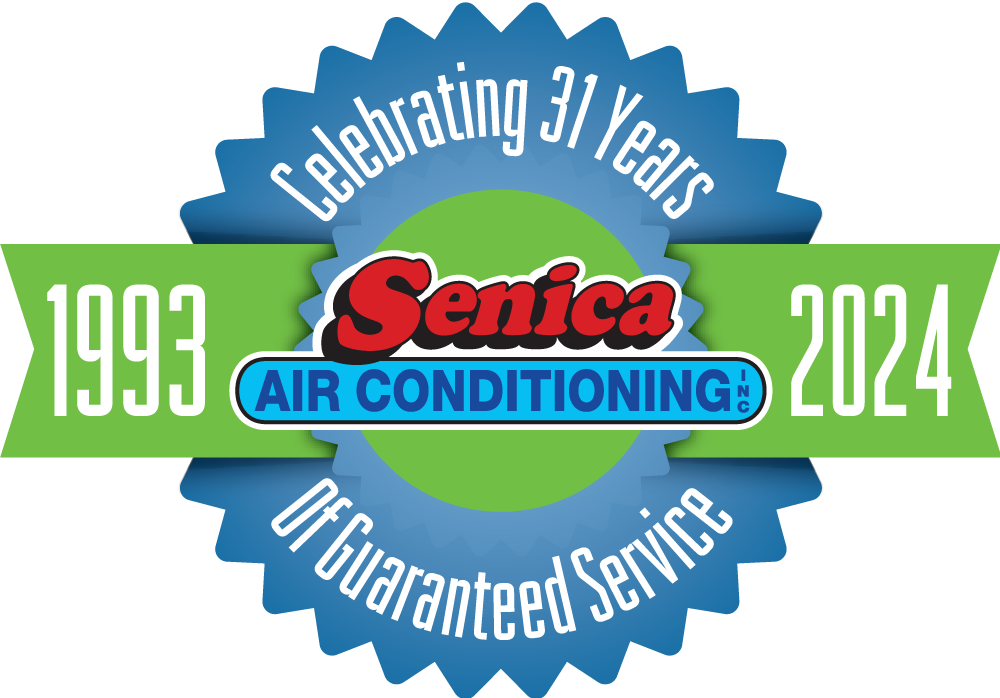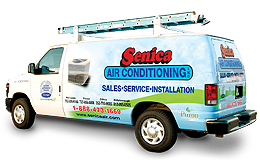Your air conditioner works to cool your home by removing heat from its air and transferring that heat to the exterior air. This means that the more heat your home gains, the more your air conditioner will have to work to keep your home cool and the higher your energy bills will be. There are many ways your home gains heat and many steps you can take to minimize heat gain.
Roofs
The most significant contributor to heat gain in homes is sunlight. Whenever sunlight strikes an object a portion of it is absorbed as heat. How much of it is absorbed depends on the properties of the materials the object is composed of. Traditional roofing materials tend to absorb a large portion of sunlight, which can make them large contributors to heat gain in your home since they also tend to be exposed to the greatest amount of sunlight.
Luckily, there are many ways you can limit the amount of heat that roofs contribute to your home. For starters, you can help limit the amount of sunlight they absorb in the first place by applying a reflective coating to the roof. You also may be able to prevent sunlight from reaching the roof by providing natural landscaping, such as trees.
Another strategy is to limit the amount of heat gain that makes it from the roof to the interior of your home. The first place that the heat your roof absorbs moves to is your attic. Because the attic is an enclosed space, heat buildup frequently leads to the temperature in the attic exceeding that of the exterior air. You’ll want to make sure there is adequate insulation between your living space and attic to limit how much of this heat can make it into your home.
You should also take steps to limit how hot the attic gets. Since the attic is hotter than the exterior, you can decrease its heat by simply increasing the ventilation between it and the exterior with vents and exhaust fans. Additionally, radiant barriers can be installed to the underside of your roof to decrease the amount of heat that is transferred into the attic.
Windows
Another major part of your home that allows sunlight to add heat to your home is its windows. Heat is normally deterred from making it into your home by its insulation, but sunlight that shines in through the windows bypasses this barrier.
Closing light-colored interior blinds and drapes helps reflect much of the sunlight back out of your home, but for even less heat gain, it’s best to keep it from entering at all. As with roofs, this can be accomplished by shading with natural landscaping. Another shading option is to use awnings that will block out direct sunlight but still allow for diffuse light to make it in. You can also use exterior shutters or louvers that can be closed during the parts of the day when the windows are in direct sunlight.
Windows also have reflective coatings available. These coatings reduce the amount of heat and ultraviolet light that gets in the windows while still allowing for a view to the exterior. They also increase your privacy by limiting people’s ability to see into the home. In colder climates, these coatings have the downside of limiting the amount of heat that can be gained through the windows in the winter, but with the warm Florida climate, this is of minimal concern.
Another way windows allow for heat to make it into your home is through poor air sealing. If your windows aren’t well-sealed, drafts will be able to bring hot exterior air into your home. You can seal any leaky windows that are present in your home with weatherstripping and caulking.
Interior Sources
A significant amount of heat that your home gains actually comes from within. Incandescent lights are very inefficient and actually turn most of the energy they use into heat. You can decrease the amount of heat lighting contributes to your home by taking advantage of natural light when it’s available and by switching to more efficient options such as compact fluorescents or LEDs.
Many appliances also contribute heat to your home. Similar to lighting, more efficient appliances will contribute less heat gain. Avoid using the stove during hot weather. You may be able to use a microwave or outdoor grill instead.
If you want more information or help reducing heat gain in your home, contact us at Senica Air Conditioning, Inc.. We provide high-quality HVAC services to Tampa, St. Petersburg and Clearwater.



